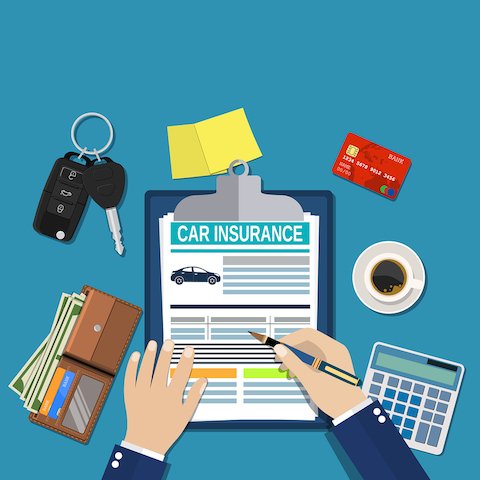Its no secret that people with poor credit often have to pay more to finance purchases like homes and cars, but a poor credit rating can also mean what a client pays for auto insurance premiums will likely be significantly more compared to a client with excellent credit.
According to a study from insuranceQuotes.com, released Aug. 23, credit history can have a significant impact on car insurance costs, meaning drivers with poor credit can pay double — or even triple — depending on where they live.
The report found that if you have fair credit, you’ll pay an average of 28% more for car insurance than a driver with excellent credit. And if you have poor credit, your premium doubles, increasing your rate by 103%.
“Many consumers are unaware that their credit history is being used to not only determine whether they will be approved for a new credit card or mortgage, but also to decide how much they pay for insurance,” said Nick DiUlio, analyst at Austin, Texas-based insuranceQuotes.com. “With 97% of U.S. insurance companies using credit-based insurance scores to determine auto premiums — apart from California, Massachusetts and Hawaii, where the practice is not allowed — it’s crucial to be educated on how scoring works and how to improve your score.”
Unlike the more commonly known consumer credit score, which lenders use to predict how likely you are to repay a debt, a credit-based insurance score (CBIS) helps insurers know how likely you are to file a claim — and therefore how great of a risk you pose. The higher your CBIS, the less likely you are to file a claim and the lower your rate.
States with the greatest premium increases when credit drops from excellent to poor:
- Michigan — 229%
- Utah — 223%
- Nevada — 209%
- Arizona — 197%
- Alabama — 193%
States with the smallest premium increase (excluding HI, MA and CA):
- North Carolina — 75%
- Virginia — 76%
- Wyoming — 79%
- New York — 85%
- Alaska — 89%
“Credit-based insurance scores are created using approximately 20 to 30 different aspects of financial data — which means that everything from late payments to outstanding debt is taken into consideration,” DiUlio said.
“For those looking to save money on auto insurance — not to mention boost their consumer credit — there are a number of best practices to keep in mind. This includes staying up-to-date on paying all credit obligations, not opening new accounts unless absolutely necessary and keeping credit card balances as low as possible — no more than 30% of the maximum borrowing limit,” DiUlio added.
The full state-by-state report is available at https://www.insurancequotes.com/auto/study-how-poor-credit-double-auto-insurance-rates-82218.
Methodology: Quadrant Information Services and insuranceQuotes.com examined the average economic impact of credit-based insurance scores on auto insurance using a hypothetical 45-year-old, married female driver with a bachelor’s degree and no prior claims or lapses in coverage.
About insuranceQuotes: insuranceQuotes gives consumers a free, easy way to shop and compare insurance quotes online for auto, home, health, life and business.














The ‘full state-by-state report’ – is a broken link
Thanks for the heads up Glen! The link has now been fixed.
There's a second link in the article that works. Try this:
Study: Poor Credit Can Double Auto Insurance Rates
The insurance industry is also getting credit reports for homeowners and renters policies. Probably even for business insurance.
I'm guessing that auto insurance is getting the press because of the much bigger impact that credit has on rates.
Good Stuff !!
My experience is that when state's do not allow credit to be a determining factor, the insurance companies use other means to justify their rates such as number of residents in household. My argument to credit use is that it is all statistic driven; have low credit, more likely to file a claim for minor things. If 25% of all fatal accidents are caused by drunk drivers, why don't we focus on the 75% of sober drivers causing fatal accidents? Insurance companies should structure their deductibles around good vs bad credit. The lower your score the higher your deductible should be. There would now be a means for lower credit people to save some money in premium and have the ability to raise their scores by paying off their debt
Everything about any kind of insurance is statistic driven.
Sober drivers get surcharged for causing accidents. Drunk drivers get more severe financial punishment because they are criminals.
That's actually not a bad idea.
” California, Massachusetts and Hawaii, where the practice is not allowed ” – California is doing it right -in my opinion.